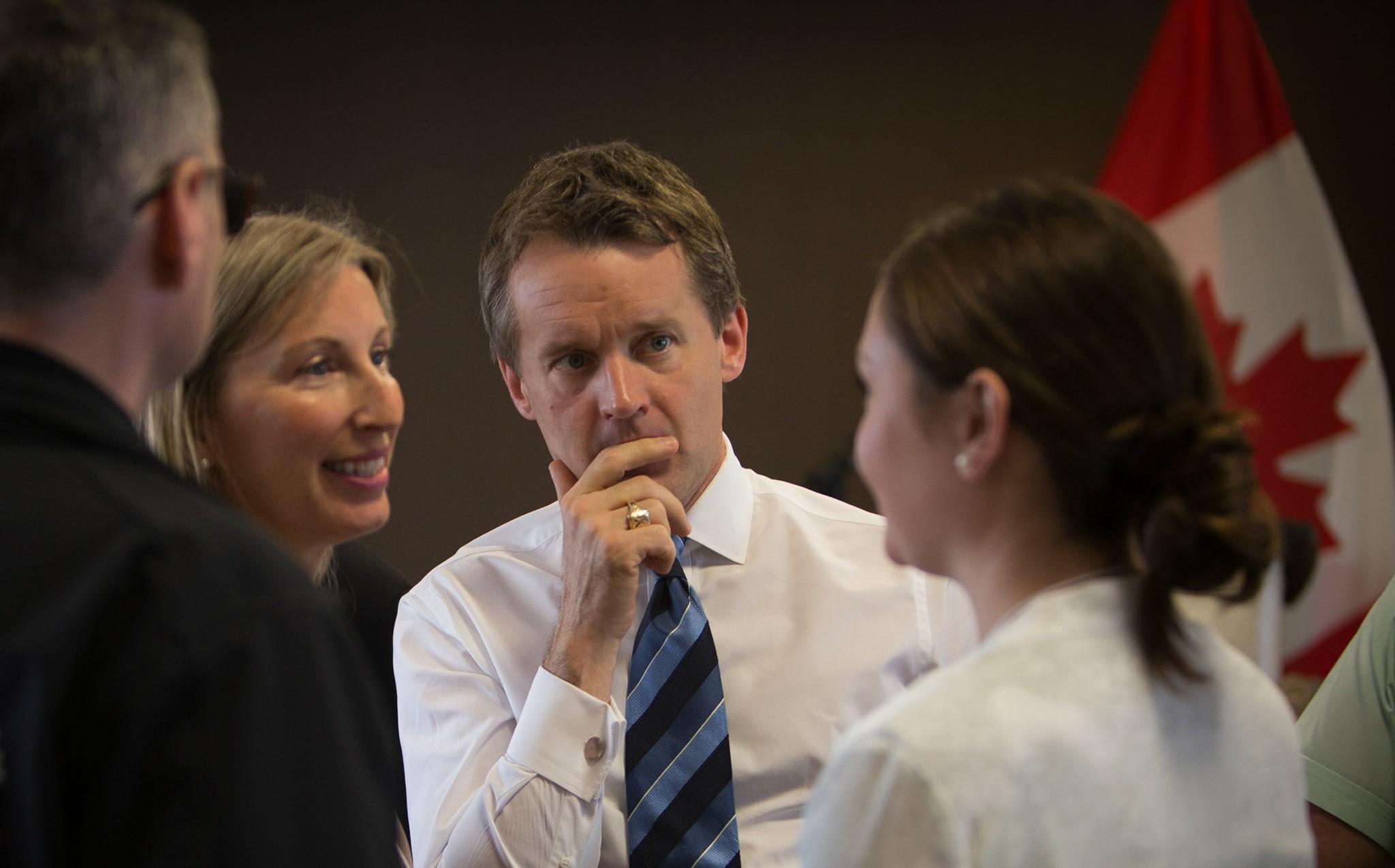
Veterans Affairs Minister Seamus O’Regan. [VAC Facebook]
“Previously it was up to the veteran to apply for benefits and services, (but) veterans often did not have enough information to be able to ask the questions that would enable them to apply,” Veterans Affairs Minister Seamus O’Regan told the Standing Committee on Veterans Affairs in March.
“Now, VAC staff take the initiative to give veterans all the information they need about the services they’re eligible for,” he said.
The program is aimed at veterans who “do not need a case manager, but need more than just a phone call,” he said. These veterans fall between those with complex needs who require help of case managers and veterans able to use online tools to meet their occasional or less complex needs.
Veteran service agents will be the primary contact for veterans and their families, analyzing veterans’ needs, co-ordinating services and guiding them through application processes. Service agents may meet veterans face-to-face and even make house calls.
Veterans involved in a six-month pilot project reported they liked having one point of contact and appreciated learning about services and benefits for which they are eligible and were pleased to have help filling out application forms, O’Regan said.
Staff liked it too, he said. Veteran service agents were able to visit veterans at home and develop plans tailored to their needs.
Applications for disability benefits have increased 32 per cent over the past two years, said O’Regan. The department is making a number of changes to better communicate with veterans about benefits and services and improve how those services are delivered.
The program grew from a review of how services are delivered to the department’s nearly 200,000 clients, including 90,692 modern veterans, 27,781 Second World War and Korean War veterans, 12,107 RCMP and 64,154 family members.
Advertisement



















